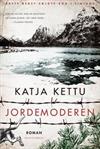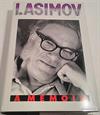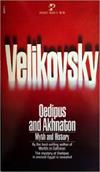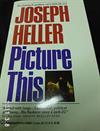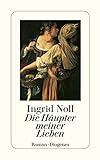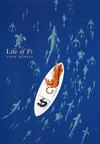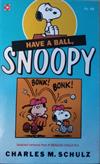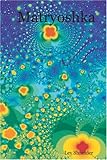
Matryoshka
Registered by Stoxasths on 2/17/2012
1 journaler for this copy...
When his ability to see music and hear paintings fails to explain why he composes a disturbingly unusual music, young musician Lev Portenin’s search for answers takes him to the twilight zone of the origins of mind.
Journal Entry 2 by Stoxasths at Greenwich, Greater London United Kingdom on Friday, February 17, 2012
“Matryoshka” came with instructions from Luz de Luna on how to read it and now, after having finished it, I totally understand what she meant. “Matryoshka” is more than a book; it is an experience to read, to travel in its worlds, to “listen” to its music. It’s a difficult book, hard to read and understand and, as Luz suggested, it’s better to not leave a lot of time between each time you read it because you lose touch of its world and atmosphere. There were many pages I had to read them again and again, parts that were full of math or philosophy or even the combination of both that I couldn’t just skip.
The book is more than a literature book, it’s philosophy, music and science, all combined together is a weird continuum including our modern digital age and soviet countries. There were parts in the book that made me stop and think about them or even lingered in my mind hours after I had closed the book. One of those parts is a phrase on page 33: “what kind of object was a finished musical tune?”. The whole notion of trying to conceive a music piece in means of a tangible object is pure magic, a deeper way to experience music with more senses. It made me think that it takes a true music lover to think something like that. Right after that, we find on page 35 another really interesting piece, where we see another way to experience pain; it’s not just an emotion, a feeling, it’s images and thoughts. And, although pain is not a pleasant situation, it’s a universal feeling but I believe people experience it in a different way, either with images of hospitals and nurses, like in the book, or in any other way.
Probably one of the most interesting notions in the book is, of course, Synesthesia. The connection of music and images is simply beautiful! Unfortunately, I cannot experience it for myself, so I truly envy anyone with that ability, to see a whole new world like that. Because that’s what I think it is, a way to combine senses and enjoy one work of art with qualities of another one! I mean, this is magic, this is a mind orgasm, the mind of everyone that thinks and lives with that must be full of beauty, new experiences, images and emotions. Leonardo Da Vinci thought of artist as a little god and that’s exactly one of my thoughts when I read about Synesthesia in a book.
The next part that made me stop for a bit is on page 78: “Art doesn’t have to play by reality’s rules”. A simple truth that explains so many things about Art. That’s a great advantage of Art, it’s a way to live our lives with a new creative limitless way, with no practical restrictions. I won’t go to the point of saying that this is the meaning of Art but it certainly is one of its core truths, something that Art can do, even if many artists do not use this ability. And to take it a bit further, that simple saying talks about so many other manmade creations, like… a video game, for example.
Right on the next page, 79, there is this: “Unlike adults, children often and willingly confuse reality with imagination. Anything that fully occupies their mind is real.” A deep psychological truth about the way children see the world and imagination. Childhood is a simpler age and the ability of young humans to experience the world with such simplicity but also beauty is wonderful. And ruined only by other humans, usually parents who they can’t but try to show how real life is. However, the way kids see the world and imagine is unique and if some of that survives the introduction to the world, those humans, I believe, become very creative and see the world as the wonder it really is.
On page 129 we see a simple presentation of his methods that also gives us a nice and clear image of how he felt about each genre of Art. The way he deals with music composition and painting shows us his feelings about those forms of art as well, we see two different styles of creation co-existing in one mind, And I think it’s really special to have a peek inside someone’s mind and the way he works.
Another beautiful piece is on page 183: “Actual size doesn’t matter. Self-image is everything”. It’s like the theory of relativity for size. What it says is that man is the measure of everything, even things we take for granted, like the size of things, can change. Or, to be more accurate, we experience them in a much different way each time, depending on our mood, emotions, goals and other factors. I, as a mind, define what is what and how big it is, therefore I have this “divine” power to change material things.
And the last quote from the book that really blew me away is on page 343: “a language as simple and universal as a kiss that says so much with so little”. It’s probably the most beautiful line from the whole book! It is used to explain how the reality quanta should be explained and this combination of science and a kiss is just wonderful. It’s a phrase that made me stop reading for quite some time and thinking about it.
One more thing that had me thinking about it for hours is the notion of how and what we feel as humans at each moment, the fact that we never feel our whole body as one single entity but we only focus on parts of it that matter to the action we perform at each given time. Even now, as I type this journal entry about the book, I do not have a whole image about my body, I am focused on my eye-hands co-ordination in order to type and I am aware of my ears because there is some music playing from my laptop. The first time I read this in Matryoshka I was amazed, I literally started thinking what I what I am feeling right now and I realized that yes, I never have a full body awareness, the limits of my body is a fuzzy idea I have in my head and I am only focused to some specific parts of my body that I use to perform a specific action or respond to certain stimuli. That’s a totally new idea for me and I was fascinated by it.
Although those are some specific parts of the book I really loved the whole book. I loved how it made me think about it a lot after I’ve read something, how I wanted to read again and again some parts of it to fully understand it, I loved the way it was travelling back and forth in time and space, between people’s lives and minds. The book is really intense, a challenge to read, certainly not a book some easy summer reading. I found myself implementing a routine of reading in order to not lose touch with the emotion and the stories in it. And I really stuck to the schedule because I enjoyed traveling into it as much as its characters loved going online to the Game.
It is the first book I read without listening to any music, I usually listen to some music to separate me from my surroundings. But this time, there was just the book, Luz said that this would be the best way to experience it. However, there was plenty of music with so many musicians and songs in the story, as well as the descriptions of music played by Lev usually and his band. The book had music in it and you could hear it. Of course, I have to say a huge “thank you” to Luz de Luna for giving me the chance to listen to the music mentioned in the book a few years ago. Every time a song or a musician was mentioned, I knew it and the music started in my head. This way, the book was rewarding me for being a good boy and not listening to music while reading it.
Music was also in the book in another way as well. As I was reading, I felt the book had a rhythm of its own, it felt like there were some more intense parts of it, full of action and things happening and other parts more relaxed, where actions was moving a bit slower. Even the look of the book shows that, I think: pages full of blocks of text are followed by pages with online chat, quick, short dialog. I found that really interesting from the moment I noticed it, I have no idea if the writer intends that to happen or not, it’s enough for me that I was feeling this rhythm, as a music piece, to be there in the book and to be “performed” every time I read it. It was one more little piece of beauty in this beautiful book.
The book had a unique and beautiful way to become philosophical, especially regarding our way of experiencing the world. How do we feel and experience the world? How do we define what is real? Is time the same thing for all of us? If our body does something, is it necessarily us that we are acting? I remember two different parts of the book around this subject. The first one is when ZeeBrain tried to find out if he is insane using some questions he found. ZeeBrain wasn’t feeling insane, insanity is a state you don’t feel but you are diagnosed with. So, you need others to tell you what is wrong with you, to diagnose you, to tell you if you are healthy or not, your own opinion and feeling are simply not enough for yourself. The other part is when Prane does not remember having sex with Lev in a different way than the one they used to. It was indeed her body having sex with Lev, but it wasn’t her mind, it was Betsy Anna controlling her. So, her body wasn’t her self at that point, her existence would be fully there if she had control over her actions and things were a memory and not some dream-like thoughts.
I also really liked the fact that it is a story of our times, where online chats and emails are things that change our mood and sometime define our emotions. It shows that the more technologically advanced we are, the more complicated some things can be.
The book was wonderful to read and experience. I couldn’t wait for the next time I would start reading again and I was really bummed every time I was standing on the bus and couldn’t read it! It’s a book that demands your attention but is very rewarding with a strange story, full of really interesting characters. Thought-provoking, it had me thinking about so many things. The writer juggles beautifully all those stories and delivers a book about humans, their world and how they experience it.
Lev (Shneider that is), congratulations about the book. Luz, thank you again for this amazing book!
The book is more than a literature book, it’s philosophy, music and science, all combined together is a weird continuum including our modern digital age and soviet countries. There were parts in the book that made me stop and think about them or even lingered in my mind hours after I had closed the book. One of those parts is a phrase on page 33: “what kind of object was a finished musical tune?”. The whole notion of trying to conceive a music piece in means of a tangible object is pure magic, a deeper way to experience music with more senses. It made me think that it takes a true music lover to think something like that. Right after that, we find on page 35 another really interesting piece, where we see another way to experience pain; it’s not just an emotion, a feeling, it’s images and thoughts. And, although pain is not a pleasant situation, it’s a universal feeling but I believe people experience it in a different way, either with images of hospitals and nurses, like in the book, or in any other way.
Probably one of the most interesting notions in the book is, of course, Synesthesia. The connection of music and images is simply beautiful! Unfortunately, I cannot experience it for myself, so I truly envy anyone with that ability, to see a whole new world like that. Because that’s what I think it is, a way to combine senses and enjoy one work of art with qualities of another one! I mean, this is magic, this is a mind orgasm, the mind of everyone that thinks and lives with that must be full of beauty, new experiences, images and emotions. Leonardo Da Vinci thought of artist as a little god and that’s exactly one of my thoughts when I read about Synesthesia in a book.
The next part that made me stop for a bit is on page 78: “Art doesn’t have to play by reality’s rules”. A simple truth that explains so many things about Art. That’s a great advantage of Art, it’s a way to live our lives with a new creative limitless way, with no practical restrictions. I won’t go to the point of saying that this is the meaning of Art but it certainly is one of its core truths, something that Art can do, even if many artists do not use this ability. And to take it a bit further, that simple saying talks about so many other manmade creations, like… a video game, for example.
Right on the next page, 79, there is this: “Unlike adults, children often and willingly confuse reality with imagination. Anything that fully occupies their mind is real.” A deep psychological truth about the way children see the world and imagination. Childhood is a simpler age and the ability of young humans to experience the world with such simplicity but also beauty is wonderful. And ruined only by other humans, usually parents who they can’t but try to show how real life is. However, the way kids see the world and imagine is unique and if some of that survives the introduction to the world, those humans, I believe, become very creative and see the world as the wonder it really is.
On page 129 we see a simple presentation of his methods that also gives us a nice and clear image of how he felt about each genre of Art. The way he deals with music composition and painting shows us his feelings about those forms of art as well, we see two different styles of creation co-existing in one mind, And I think it’s really special to have a peek inside someone’s mind and the way he works.
Another beautiful piece is on page 183: “Actual size doesn’t matter. Self-image is everything”. It’s like the theory of relativity for size. What it says is that man is the measure of everything, even things we take for granted, like the size of things, can change. Or, to be more accurate, we experience them in a much different way each time, depending on our mood, emotions, goals and other factors. I, as a mind, define what is what and how big it is, therefore I have this “divine” power to change material things.
And the last quote from the book that really blew me away is on page 343: “a language as simple and universal as a kiss that says so much with so little”. It’s probably the most beautiful line from the whole book! It is used to explain how the reality quanta should be explained and this combination of science and a kiss is just wonderful. It’s a phrase that made me stop reading for quite some time and thinking about it.
One more thing that had me thinking about it for hours is the notion of how and what we feel as humans at each moment, the fact that we never feel our whole body as one single entity but we only focus on parts of it that matter to the action we perform at each given time. Even now, as I type this journal entry about the book, I do not have a whole image about my body, I am focused on my eye-hands co-ordination in order to type and I am aware of my ears because there is some music playing from my laptop. The first time I read this in Matryoshka I was amazed, I literally started thinking what I what I am feeling right now and I realized that yes, I never have a full body awareness, the limits of my body is a fuzzy idea I have in my head and I am only focused to some specific parts of my body that I use to perform a specific action or respond to certain stimuli. That’s a totally new idea for me and I was fascinated by it.
Although those are some specific parts of the book I really loved the whole book. I loved how it made me think about it a lot after I’ve read something, how I wanted to read again and again some parts of it to fully understand it, I loved the way it was travelling back and forth in time and space, between people’s lives and minds. The book is really intense, a challenge to read, certainly not a book some easy summer reading. I found myself implementing a routine of reading in order to not lose touch with the emotion and the stories in it. And I really stuck to the schedule because I enjoyed traveling into it as much as its characters loved going online to the Game.
It is the first book I read without listening to any music, I usually listen to some music to separate me from my surroundings. But this time, there was just the book, Luz said that this would be the best way to experience it. However, there was plenty of music with so many musicians and songs in the story, as well as the descriptions of music played by Lev usually and his band. The book had music in it and you could hear it. Of course, I have to say a huge “thank you” to Luz de Luna for giving me the chance to listen to the music mentioned in the book a few years ago. Every time a song or a musician was mentioned, I knew it and the music started in my head. This way, the book was rewarding me for being a good boy and not listening to music while reading it.
Music was also in the book in another way as well. As I was reading, I felt the book had a rhythm of its own, it felt like there were some more intense parts of it, full of action and things happening and other parts more relaxed, where actions was moving a bit slower. Even the look of the book shows that, I think: pages full of blocks of text are followed by pages with online chat, quick, short dialog. I found that really interesting from the moment I noticed it, I have no idea if the writer intends that to happen or not, it’s enough for me that I was feeling this rhythm, as a music piece, to be there in the book and to be “performed” every time I read it. It was one more little piece of beauty in this beautiful book.
The book had a unique and beautiful way to become philosophical, especially regarding our way of experiencing the world. How do we feel and experience the world? How do we define what is real? Is time the same thing for all of us? If our body does something, is it necessarily us that we are acting? I remember two different parts of the book around this subject. The first one is when ZeeBrain tried to find out if he is insane using some questions he found. ZeeBrain wasn’t feeling insane, insanity is a state you don’t feel but you are diagnosed with. So, you need others to tell you what is wrong with you, to diagnose you, to tell you if you are healthy or not, your own opinion and feeling are simply not enough for yourself. The other part is when Prane does not remember having sex with Lev in a different way than the one they used to. It was indeed her body having sex with Lev, but it wasn’t her mind, it was Betsy Anna controlling her. So, her body wasn’t her self at that point, her existence would be fully there if she had control over her actions and things were a memory and not some dream-like thoughts.
I also really liked the fact that it is a story of our times, where online chats and emails are things that change our mood and sometime define our emotions. It shows that the more technologically advanced we are, the more complicated some things can be.
The book was wonderful to read and experience. I couldn’t wait for the next time I would start reading again and I was really bummed every time I was standing on the bus and couldn’t read it! It’s a book that demands your attention but is very rewarding with a strange story, full of really interesting characters. Thought-provoking, it had me thinking about so many things. The writer juggles beautifully all those stories and delivers a book about humans, their world and how they experience it.
Lev (Shneider that is), congratulations about the book. Luz, thank you again for this amazing book!


